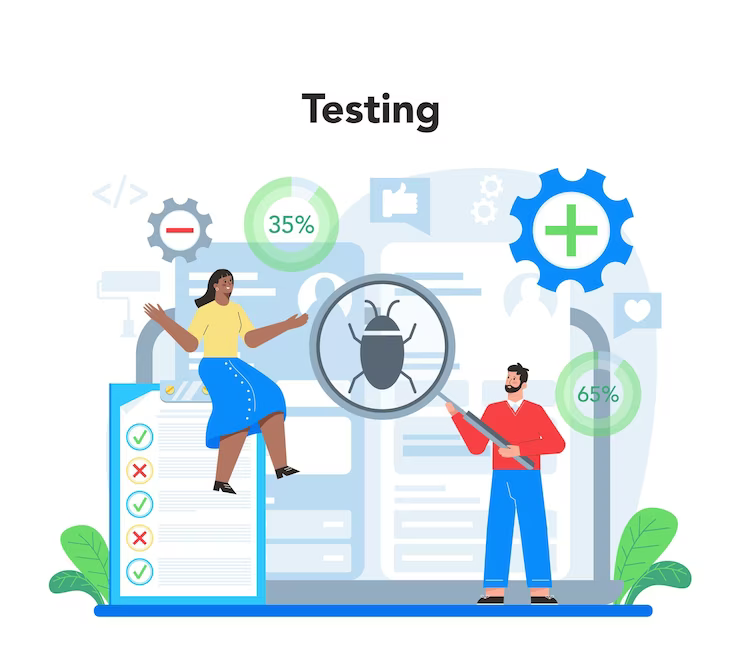More topics of interest

Privacy policy

Automation in DevOps: Key Tools to Accelerate Development


QA Quality

Unit tests are a set of tests carried out at the code level to verify the correct functioning of individual software units, such as functions, methods, or classes. These tests focus on validating the expected behavior of each unit, ensuring that they produce the desired results and integrate correctly with the rest of the system. These tests are essential for detecting and correcting errors in the early stages of development, reducing long-term costs, and improving software quality by providing better results.
By applying AI techniques, it is possible to automate and optimize unit tests, improving efficiency and accuracy of results. Below are some benefits of how AI can be applied in unit testing:
AI can assist in the execution of automated tests, saving time and resources. Machine learning algorithms can analyze the code and quickly generate test cases automatically, identifying possible test scenarios and generating relevant test data, reducing manual workload, and accelerating the testing process.

By using AI, it is possible to automatically generate a variety of test cases that cover different scenarios and conditions. Test case generation algorithms can analyze the code, identify critical points, and generate effective test cases that cover all possible code variations. This ensures comprehensive test coverage and helps identify possible issues before implementation or at early stages.
AI can also help optimize unit tests by identifying error-prone areas of code and focusing testing efforts on critical flows. It likewise analyzes the code and provides recommendations on the tests that should be performed for greater test coverage
Now that we have seen the potential of artificial intelligence in unit tests, we need to know how to implement an efficient and effective model. Here are some steps to implement a model for unit tests with AI:
You must collect and prepare the necessary data for training the model, which should include datasets from previous tests, existing test cases, and test execution data. It is important to ensure that the data is relevant and covers a wide variety of test scenarios.
To select and train the appropriate artificial intelligence model for unit testing, you must choose the most suitable machine learning algorithm and train it using the collected data. During training, the model will learn to recognize patterns and trends in the test data and will be able to generate effective test cases.
The model must now be integrated into the existing testing process. This may involve automating the execution of tests using the model, automatically generating test cases, or optimizing existing tests using the model’s recommendations. It is vital
to ensure that the model fits into the organization’s testing workflow and integrates effectively with existing tools and platforms.
Implementing a model for unit testing with AI can bring many benefits to organizations, especially those with large-scale software development projects. However, it is important to list the needs and resources of the organization before applying this model.
Some usual challenges include collecting and preparing adequate test data, selecting the most appropriate AI model, and integrating the model into the existing testing process. In addition, it is crucial to ensure that the model is properly trained and can adapt to changes and project requirements.
As with any artificial intelligence implementation, there are potential risks, as it is constantly evolving, plus it can create excessive dependence on the AI model or lack of interpretability of the results. It is relevant to address these risks through continuous assessment and monitoring of the model’s results.
YOU MIGHT ALSO BE INTERESTED IN: ARTIFICIAL INTELLIGENCE TO ENHANCE YOUR DIGITAL MARKETING STRATEGY
The use of artificial intelligence in unit testing represents an exciting opportunity to improve the efficiency and quality of software development through automation, automatic generation of test cases, and optimization of existing tests; increasing the reliability of the results and the power to apply the combination of human expertise and artificial intelligence in unit tests can lead to more efficient software development, reducing costs and improving the quality of the final product.
However, it is important to bear in mind that implementing a model for unit testing with artificial intelligence requires careful planning and a deep understanding of the associated challenges and risks. Proper data collection and preparation, model selection and training, and effective integration into the testing process are key elements to effectively apply the model.
Don’t wait any longer, contact us and let us start exploring the possibilities offered by artificial intelligence in unit testing!
Nivelics
Comparte







Contact us at